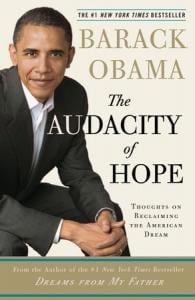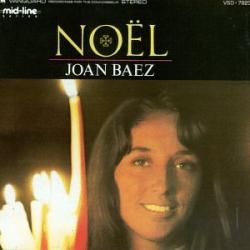O, fly and never tire,
Fly and never tire,
Fly and never tire,
There’s a great camp-meeting in the Promised Land.
Apart from quoting this spiritual in an opening epigraph, I don’t think Barack Obama’s first presidential memoir ever uses the phrase that serves as its title. But the notion of America as “a promised land” is hinted at just over 100 pages into A Promised Land, via a conversation the country’s 44th president remembers having with Otis Moss Jr. in 2007. About a year before he won the Democratic presidential primary in Iowa, then-Senator Obama felt stung by “voices within the Black community arguing that I wasn’t ready, or I was too radical, or too mainstream, or not quite Black enough.” Moss, a former adviser to Martin Luther King Jr., uses an Old Testament metaphor to help him “push through [his] doubts”:
“Every generation is limited by what it knows,” Dr. Moss told me. “Those of us who were part of the movement, giants like Martin, lieutenants and foot soldiers like me… we are the Moses generation. We marched, we sat in, we went to jail, sometimes in defiance of our elders, but we were in fact building on what they had done. We got us out of Egypt, you could say. But we could only travel so far.
“You, Barack, are part of the Joshua generation. You and others like you are responsible for the next leg of the journey. Folks like me can offer the wisdom of our experience. Perhaps you can learn from some of our mistakes. But ultimately it will be up to you, with God’s help, to build on what we’ve done, and lead our people and this country out of the wilderness.”
It’s an audacious comparison, not least because it so clearly evokes King’s own tragic last speech. A day before his assassination, MLK imagined himself as Moses on the mountain top, looking at a land that he would die before entering, with Joshua left to fulfill the promise. Speaking at Selma’s historic Brown Chapel Church that spring, Obama made the comparison even more explicit:
I’m here because somebody marched. I’m here because you all sacrificed for me. I stand on the shoulders of giants. I thank the Moses generation; but we’ve got to remember, now, that Joshua still had a job to do. As great as Moses was, despite all that he did, leading a people out of bondage, he didn’t cross over the river to see the Promised Land. God told him your job is done. You’ll see it. You’ll be at the mountain top and you can see what I’ve promised. What I’ve promised to Abraham and Isaac and Jacob. You will see that I’ve fulfilled that promise but you won’t go there.
In a sense, the rest of the book is Obama recounting his experience as a Joshua, but it’s telling that he doesn’t actually quote his homily in Selma. (I had to dig it up at the American Rhetoric website, where you’ll find that he talks about “the Promised Land” in dozens of speeches.) For while that sermon took its language from the Bible, was inspired by two Baptist pastors, and was delivered in an AME church brought “to full revival mode” by his words, you wouldn’t necessarily know from A Promised Land that Barack Obama himself is a Christian.
Perhaps that’s simply because he’s told that story already. If all you read of his community-organizing days in Chicago was the brief survey included in this memoir, you’d wonder what he meant that he “discovered a community of faith—that it was okay to doubt, to question, and still search for something beyond the here and now.” To learn how Obama came to faith at Trinity United Church of Christ, you’d need to go back to his first memoir, Dreams from My Father, where Rev. Jeremiah Wright preaches a powerful sermon that thanks Jesus “for not letting go of me when I let go of you!” As Obama explains in A Promised Land on either side of his conversation with Moss, his relationship with “a pastor who embodied all the contradictory impulses I was attempting to corral” became a political liability during his run for the presidency. (Incidentally, Moss’ son succeeded Wright at Trinity UCC.) But Wright’s sermon gave Obama the title for The Audacity of Hope, his 2007 campaign book, in which the story of his religious conversion ends with his baptism at Trinity:
It came about as a choice and not an epiphany; the questions I had did not magically disappear. But kneeling beneath that cross on the South Side of Chicago, I felt God’s spirit beckoning me. I submitted myself to His will, and dedicated myself to discovering His truth.
Not to say that religious language and experience are absent from A Promised Land. Obama’s account of his first inauguration starts with T.D. Jakes preaching on Shadrach, Meshach, and Abednego (“God is with you in the furnace,” he promises), continues with political leaders climbing into limousines in a process that Obama likens to “the boarding of Noah’s Ark,” and culminates with him pausing before the oath-taking ceremony to “[summon] the prayer that had carried me here, one I would continue to repeat every night I was president.” He doesn’t report the exact words of that prayer, but perhaps it sounded like the one he wrote out later that year and tucked into Jerusalem’s Western Wall: “Lord, protect my family and me. Forgive me my sins, and help me guard against pride and despair. Give me the wisdom to do what is right and just. And make me an instrument of your will.”
But one gets the sense he only quotes himself there because that prayer had already been published. “I had assumed those words were between me and God,” Obama laments, but the paper was dug out by a yeshiva student and printed in an Israeli newspaper. “The line between my private and public lives was dissolving,” he concludes; “each thought and gesture was now a matter of global interest.” For this book, it seems that Obama decided to redraw that line as strongly as possible, keeping his personal faith to himself.
 Or perhaps he simply decided that Christianity should not feature prominently in what’s more a memoir of the presidency than a memoir of a person who temporarily held that office. As he wrote in Audacity of Hope, church-state separation does not mean that religion has no role to play, but “our deliberative, pluralistic democracy does demand… that the religiously motivated translate their concerns into universal, rather than religion-specific, values.”
Or perhaps he simply decided that Christianity should not feature prominently in what’s more a memoir of the presidency than a memoir of a person who temporarily held that office. As he wrote in Audacity of Hope, church-state separation does not mean that religion has no role to play, but “our deliberative, pluralistic democracy does demand… that the religiously motivated translate their concerns into universal, rather than religion-specific, values.”
One way that American Christians have accomplished that translation is by participating in what Robert Bellah called American civil religion, which shares “much in common with Christianity” but is “neither sectarian nor in any specific sense Christian.”
So if A Promised Land is not an explicitly Christian memoir, it may make sense to read it as a civil religious memoir. I’d recommend approaching it as the story of a Christian president who “would never fully rid myself of the sense of reverence I felt whenever I walked into the Oval Office, the feeling that I had entered not an office but a sanctum of democracy,” of a Jesus-following commander-in-chief who “prayed that I and the others who commanded them were worthy” of the trust of West Point cadets and viewed as “a necessary penance” the act of visiting those wounded in Afghanistan and Iraq.
Calling a memoir civil religious rather than Christian may seem suspect to readers of a Christian blog on an Evangelical platform, but Bellah would encourage us to regard American civil religion as something deeply meaningful to at least some of its adherents: “a genuine apprehension of universal and transcendent religious reality as seen in or, one could almost say, as revealed through the experience of the American people.” And even if it strikes us as empty ritual or potential idolatry, I think that James Bratt is right (in his response to our guest post on this topic last week) that “if we as Christians are going to participate in American public life, we’re going to have to interface with American Civil Religion.”
So if we are to take civil religion as seriously as any other, we shouldn’t dismiss as mere rhetorical flourishes the titular allusion to a promised land, or Obama’s early political instinct that “it would be possible to build a new covenant between” America’s divided citizens. It’s possible that those phrases carry double weight for our author: privately, as a Christian; publicly, as an American. Precisely because American civil religion is genuinely trying to apprehend something universal and transcendent, it shouldn’t surprise us that Bellah found “Promised Land” among the many “biblical archetypes” lying “behind the civil religion at every point.”
The first hint of civil religion’s overlap with Christianity and its reaching for something that transcends the complications of American history comes very early in A Promised Land. Obama recalls how his mother and her parents
had never been noisy in their patriotism. Reciting the Pledge of Allegiance in class, waving small flags on the Fourth of July—these were treated as pleasant rituals, not sacred duties (their attitudes toward Easter and Christmas were pretty much the same)….
And yet the pride in being American, the notion that America was the greatest country on earth—that was always a given.
As a young Black man — and an American born to a Kenyan father and raised for a time in Indonesia — Obama says he knew from early on the limitations and hypocrisies of a country that’s more often great than good, one that derived no small share of its power from slavery, conquest, and war. Even as president, he proves attentive to the ways that American civil religion has, in Bellah’s words, “suffered various deformations and demonic distortions.” Riding Air Force One around the world, for example, invariably deplaning to some elaborate greeting made him sense “the faint but indelible residue of ancient rituals—rituals of diplomacy, but also rituals of tribute to an empire.”
Yet he never seems to have put away as childish things his youthful encounters with “the idea of America, the promise of America: this I clung to with a stubbornness that surprised even me.” The America of Walt Whitman’s poems and Billie Holiday’s songs, of the Wright Brothers’ dreams and Jane Addams’ toil, of the constitutional rule of law and “Jackie Robinson stealing home” continued to be an “America that could explain me.”
If anything, that America becomes more meaningful to him as he takes on more responsibility for its leadership. Visiting homeless shelters and military hospitals on the eve of his inauguration, Obama asks, “How could my heart not be stirred? How could I resist believing there was something true in all this, something that might last?” Then as his administration starts, amid the Great Recession, he describes its task as helping Americans like the Nevadan who had had to default on his mortgage: “He hadn’t lost his home, but he’d lost faith in the shared enterprise of our country, its larger ideal.”
The author of A Promised Land never loses that idealism, but I’m not sure readers will feel the same way by the time this overlong first installment in a multi-volume series abruptly concludes in May 2011. “Fly and never tire,” says the spiritual, but I ran out of steam with over 100 pages left to go. So much of A Promised Land is so wonkish that most of the time we’d have to look to Numbers or 1 Chronicles for anything like “biblical archetypes.” And for all its genuine insights into politics and history, Obama’s overly detailed, inevitably defensive accounts of battling Republican partisans on one hand and progressive purists on the other may make you doubt that anything true or enduring can emerge from the sausage-maker that is the U.S. system of government.
But the fact that he’s so attentive to all those details — and that the book ends in mid-story, with the May 2011 raid that killed Osama Bin Laden — underscores that Obama’s version of American civil religion reifies the journey as much as the destination. Its last image has Obama looking down on a helicopter flight back to the White House and recognizing the rush hour traffic below as “fellow commuters… anxious to get home.” His return to Selma in 2015 will have to wait for the next volume, but surely he’ll revisit his memorable remarks at the Edmund Pettus Bridge, where he celebrated the 50th anniversary of that civil rights march as “one leg in our long journey toward freedom.” For if there’s no “greater expression of faith in the American experiment than this… the belief that America is not yet finished,” then it’s the effort that inspires as much as the result.
“Whatever you do won’t be enough,” he imagines the people of the world telling him at one point. “Try anyway.” For how you cross the wilderness matters as much as the land waiting on the other side of it.












